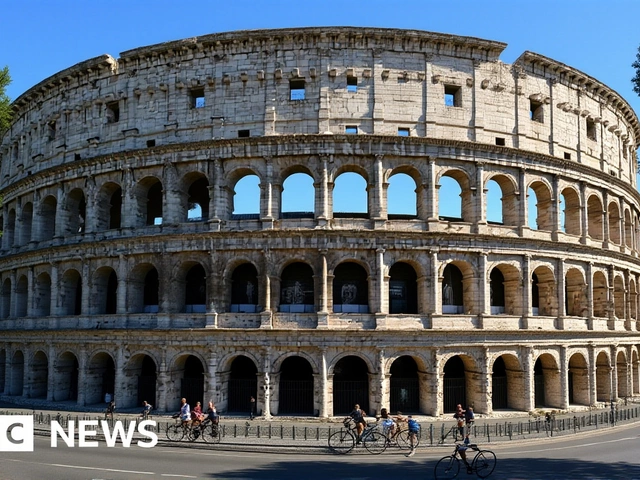When Dick Advocaat walked off the pitch at Petrovsky Stadium on August 9, 2009, after a 2-0 home loss to Tom Tomsk, he likely knew his time at Zenit Saint Petersburg was over. The next day, the club confirmed it: after three years, three trophies, and a stunning collapse in form, Advocaat was gone. The final straw wasn’t just the loss—it was what the loss represented. Zenit, once the pride of Russian football and a team chasing Champions League qualification, now sat seventh in the league. Fans were restless. The board was furious. And the manager? He’d already made up his mind to leave—for Belgium.
The Slow Collapse of a Champion
Advocaat didn’t arrive at Zenit as a stopgap. He came in June 2006, hired by Gazprom after they took control of the club. His job? Turn a mid-table side into a powerhouse. He did exactly that. By 2007, Zenit won the Russian Premier League. In 2008, they lifted the UEFA Cup, beating Rangers FC in the final. That season, they also won the Russian Super Cup. For a club that had never won a major European trophy, it was historic.But success bred expectations—and then, the exodus. In January 2009, Andrey Arshavin, Zenit’s talismanic playmaker, left for Arsenal FC. Then came Anatoly Tymoschuk to FC Bayern München and Pavel Pogrebniak to VfB Stuttgart. The core was dismantled. And the replacements? Underwhelming. Advocaat publicly clashed with sporting director Igor Korneev, a former Zenit midfielder, over transfers. He wanted experienced players. Korneev brought in Alessandro Rosina—a talented Italian, yes, but one who never clicked in Russia’s physical league. "I no longer want to work with Korneev," Advocaat told reporters in May 2009. That wasn’t just frustration. It was a warning.
When Ambition Outpaced Loyalty
Here’s the twist: Advocaat didn’t wait for his contract to expire. He signed a two-year, $1.688 million deal to manage the Belgium national team in May 2009, with the job starting January 1, 2010. That meant he was already mentally checked out. Zenit’s leadership noticed. Players noticed. Fans noticed. The team’s performance slipped. They lost to CSKA Moscow in the Russian Cup. They dropped points against relegation candidates. By August, they were seventh—outside the European spots, and falling.The final match, against Tom Tomsk, was a humiliation. Tomsk, sitting 14th, had won just twice all season. Zenit, with a squad that had once conquered Europe, couldn’t score. The crowd booed. The media called it a disgrace. The next morning, the club statement dropped: "After a series of poor results... we have decided to terminate the contract."
It wasn’t just about results. It was about momentum. Zenit had been built to compete at the top. Advocaat had delivered. But now, he was a manager in name only. And the club couldn’t afford to wait for a contract to run out.
The Aftermath: A Club in Transition
Zenit moved fast. Within hours of Advocaat’s dismissal, they named Anatoly Davydov, their youth team coach, as interim manager. Davydov had spent years developing Zenit’s academy players. His promotion signaled a return to fundamentals—a rebuild from within. The board insisted the move was "to stabilise the club’s position and its future development." But everyone knew: this was damage control.Advocaat’s legacy at Zenit remains complicated. He gave them their first European trophy. He modernized their training. He brought discipline. But he also failed to adapt when the squad changed. His frustration with Korneev wasn’t just personal—it was strategic. He saw the club’s direction slipping, and he didn’t have the power to stop it.
By the end of the 2009 season, Zenit finished fourth—barely qualifying for Europa League. They never won another trophy under Advocaat’s successors until 2015. His departure marked the end of an era: the last time Zenit had a manager who truly shaped the club’s identity.

What Happened Next?
Advocaat took over the Belgium national team in January 2010. He lasted just 18 months, resigning after a poor Euro 2012 campaign. He later returned to club football, managing Fenerbahçe and the Netherlands national team. But he never again reached the heights of his Zenit years.As for Zenit? They hired Luciano Spalletti in 2009, who restored order and led them to the 2010 Russian Cup. But the real transformation came later, under Andrey Chernyshov and then Roberto Mancini. The club’s financial muscle, backed by Gazprom, kept them competitive. But they never fully recovered the swagger they had under Advocaat in 2008.
Frequently Asked Questions
Why was Dick Advocaat fired if he was already leaving for Belgium?
Zenit didn’t wait for his contract to expire because his performance had deteriorated sharply after announcing his move to Belgium. The club feared his focus was split and that his influence was fading, which hurt morale and results. With the team slipping to seventh place, they needed decisive action—not patience.
Who were the key players Zenit lost before Advocaat’s dismissal?
Zenit lost three crucial players in early 2009: Andrey Arshavin to Arsenal, Anatoly Tymoschuk to Bayern Munich, and Pavel Pogrebniak to VfB Stuttgart. These weren’t just goal-scorers or midfielders—they were leaders and match-winners. Their replacements, including Alessandro Rosina, failed to fill the void, which Advocaat openly criticized.
How did Zenit’s performance change after Advocaat left?
Zenit finished the 2009 season in fourth place, just missing Champions League qualification. They won the Russian Cup under interim coach Anatoly Davydov and later Luciano Spalletti, but never replicated the dominance of the 2007–08 season. The club’s decline wasn’t immediate, but the loss of identity and cohesion after Advocaat’s exit lingered for years.
What role did Gazprom play in Advocaat’s dismissal?
Gazprom, which took over Zenit in 2005, had the final say on all major decisions, including coaching changes. While they backed Advocaat’s early success, they expected consistent top-four finishes. After a poor 2009 season and a humiliating loss to Tom Tomsk, Gazprom’s board—accustomed to winning—acted swiftly to avoid reputational damage and investor dissatisfaction.
Was Advocaat’s conflict with Igor Korneev a major factor?
Absolutely. Advocaat blamed Korneev for poor transfers and a lack of squad depth. He publicly stated he "no longer wanted to work with him," a rare and serious move in Russian football. The board saw this as a breakdown in leadership structure. With the team losing, they chose to remove Advocaat rather than risk further internal chaos.
What was the significance of the loss to Tom Tomsk?
Tom Tomsk were 14th in the league and had won only two matches all season. Zenit, a former European champion, lost 2-0 at home. The result was symbolic: a club that once dominated Russia now couldn’t beat a relegation-threatened side. For fans and management alike, it was the final proof that the team had lost its way.






